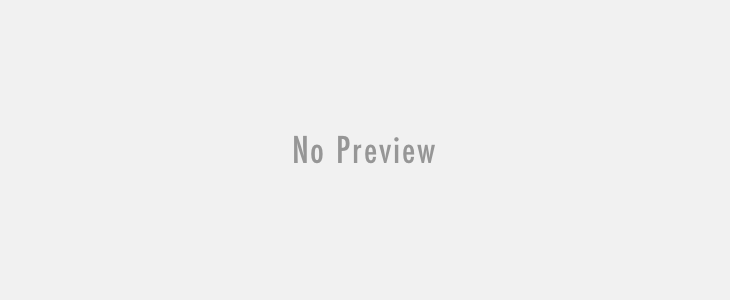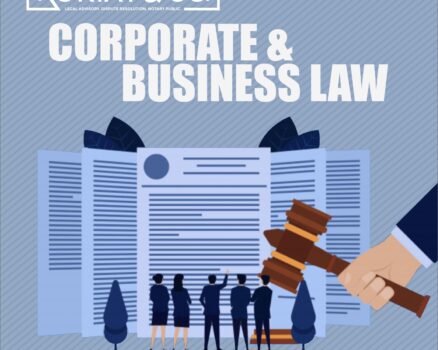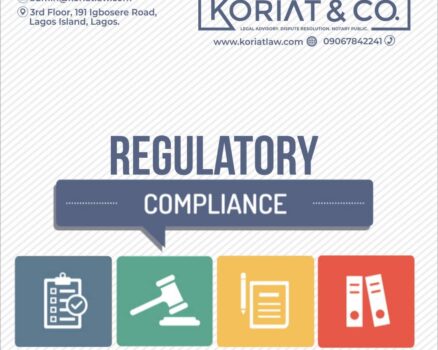
What Importers need to know about the SON Conformity Assessment Program (“SONCAP”)
Any company dealing in importation of goods into Nigeria will invariably require the certificate of the Standard Organisation of Nigeria (“SON”), an agency established by law to regulate the importation of goods into Nigeria as well as setting the requisite standards for the production and sale of goods and services amongst others.
In 2005, the SON introduced the SON Conformity Assessment Program (“SONCAP”) to prevent the importation of substandard and unsafe goods into Nigeria. It is a pre-shipment verification of conformity to Standards process done used to verify that the products to be imported into Nigeria are in conformity with the applicable Nigerian Industrial Standards (“NIS”) or approved equivalents, and technical regulations before shipment.
At present, there are about 1,300 NIS Standards and over 13,000 international standards maintained by the Standards Directorate of SON.
SONCAP entails physical inspection prior to shipment, sampling, testing and analysis in accredited laboratories, audit of product processes and systems, documentary check of conformity with regulations and overall assessment.
All goods to be imported into Nigeria are required to be verified and tested at the country of supply (i.e. exporting country) and a SONCAP Certificate or SONCAP Import Permit issued demonstrating that the products to be imported meet the applicable standards and regulations or a Non-Conformity Report (“NCR”), where the goods do not comply with the set standards and regulations. So, each shipment of goods or products (subject to SONCAP) arriving any Nigeria Port must be accompanied by a SONCAP Certificate.
All Pre-Arrival Assessment Report (“PAAR”) Applications must be carried out at the time of departure of consignments to Nigeria. Any application for PAAR for goods already at Nigerian Ports and Borders will be termed by the SON as default and penalized accordingly.
What is the relevance of the SONCAP Certificate in importation of goods into Nigeria?
In order to import some items/products into Nigeria, an importer must obtain a SONCAP Certificate to certify that the imported products or materials have been duly inspected by SON and the standards for the manufacture of the products or materials conform with SON’s requirements, technical regulations and approved industrial standards.
The SONCAP Certificate is necessary to raise and obtain the PAAR from the Nigeria Custom Services which is required for the clearance of SONCAP regulated goods from the Nigeria Ports.
SONCAP Certificate is the official confirmation that imported goods or products have complied with the relevant Nigerian technical regulations and approved international, regional and national standards.
Are there Accredited Firms working with the SON for processing of SONCAP Certificate?
Yes. For convenience and efficiency in processing the issuance of SONCAP Certificate, the SON has some accredited and independent firms.
The SONCAP Scheme is operated on behalf of the SON by the following six (6) International Accreditation Firms (“IAFs”):
i. Bureau Veritas GSIT SAS (BV)
ii. China Certification and Inspection Group (CCIC)
iii. China Standard Inspection Company Limited (CSIC)
iv. Cotecna Inspection Limited SA
v. Société Generale de Surveillance (SGS) SA
vi. Intertek
Please note that no territory or region or area has been assigned to any of the above IAFs. Therefore, the IAFs are free to operate in every area of their competence and at any location in the world.
What nature of goods or products require SONCAP Certificate?
All imported goods or products require SONCAP Certificate except the following:
i. Food products
ii. Drugs (Medicines)
iii. Medicals other than equipment and machines
iv. Chemicals used as raw material by bonafide manufacturers
v. Military wares & equipment
vi. Goods classified as contraband by the Federal Government of Nigeria; and
vii. Used products other than automobiles.
Please note that a bona fide manufacturer who intends to import machinery or related spare parts for their manufacturing are required to apply to the SON for SONCAP Import Permit to enable them to import their machinery or spare parts.
Please note also that the Federal Government of Nigeria through an Inter-ministerial Technical Committee on Comprehensive Import Supervision Scheme (“CISS”), which is domiciled at the Central Bank of Nigeria (“CBN”), may from time to time add or delete product(s) requiring or subject to SONCAP Certificate.
What is the procedure for obtaining a SONCAP Certificate?
A SONCAP Certificate will not be issued to an Applicant except the Applicant has first obtained a Product Certificate and/or a Certificate of Conformity (“CoC”) for products to be imported.
An Applicant for a PC may apply under any of the 3 categories mentioned below:
i Product Certificate 1 (applicable for one-time importers and valid for only 6 months);
ii Product Certificate 2 (applicable for occasional importers and valid for one year); and
ii Product Certificate 3 (applicable for frequent importers and valid one year).
The SON has three (3) established routes (i.e. Routes A, B and C) for conformity assessment procedures for product(s) subject to SONCAP in accordance to type or nature of product, risk profile of the manufacturer and effect of the product on the health and safety, and environmental protection.
The routes are as follows:
i. Route A: For Conformity Verification of Unregistered or Unlicensed Products:
Under Route A, a SONCAP Certificate is issued after a pre-shipment inspection, consignment testing, witnessing of stuffing of Full Container Load (“FCL”) and affixing of seals to the FCL upon verification and confirmation of conformity to the requirements.
The SONCAP Certificate issued under Route A is for that particular consignment and expires upon the importation of the relevant consignment.
The steps to follow are set out below:
Step 1: Product Certificate 1 (Unregistered Status)
Product Certificate 1 (Unregistered Status), valid for six months to be issued by IAF upon satisfactory completion of:
– Inspection
– Product Sampling: Samples submitted for testing shall be:
(i) drawn by the IAF, or
(ii) drawn under IAF’s supervision at the manufacturer’s premises.
Step 2: Test Report
Test Report to be issued by:
– Approved ISO 17025 laboratories; or
– Manufacturer for testing witnessed by IAF.
Step 3: Certificate of Conformity (“CoC”)
Certificate of Conformity to be issued by IAF upon:
– Receipt of satisfactory Test Report as per step 2 above;
– Satisfactory goods verification, witnessing of stuffing of Full Container Loads (FCL) and affixing of seals to FCL based on a risk assessment; and
– Receipt of satisfactory final documents.
In the event of non-compliance with the testing and/or inspection requirements, the IAF shall issue a Non-Conformity Report.
ii. Route B: Registration and Conformity Inspection for Registered Products
This Route entails the audit of the manufacturer’s factory in the home country from which the products or goods are to be imported to Nigeria. The registration of products, using Route B, is done by following some product-type testing and assessment of the manufacturer’s quality system in order to determine that the product(s) under consideration is in conformity with the applicable standards and that the manufacturer has the necessary systems in place to produce consistently over a time the same quality product.
The steps to follow via Route B is set out in three (3) steps below:
Step 1: Product Certificate 2 (Registered Status)
Product Certificate, valid for one year, will be issued by IAF upon satisfactory completion of audit of manufacturer’s factory. Manufacturer/Exporter under route A could be elevated to Route B based on good compliance history (minimum of four fully compliant transactions).
Step 2: Test Report
A Test Report, issued by approved laboratory or manufacturer, to be received by IAF for every shipment but (in at least 40% of shipments per quarter) the IAF to have either taken the sample for submission to the approved laboratory or to have witnessed the sampling and testing at the manufacturer’s premises.
Step 3: Certificate of Conformity (“CoC”)
Certificate of Conformity to be issued by IAF upon:
– Receipt of satisfactory Test Report as per Step 2 above;
– Satisfactory goods verification, witnessing of stuffing of Full Container Loads (FCL) and affixing of seals to FCL (where feasible at least 40% of shipments per quarter); and
– Receipt of satisfactory final documents.
In the event of non-compliance with the testing and/or inspection requirements, the IAF shall issue a Non-Conformity Report.
Route C: Product Certification System for Licensed products
Product certification and licensing of manufacturer is only based on a very detailed evaluation of the product, including testing and factory audit and regular surveillances by the SON. If the tested products are in conformity with the relevant NIS or approved equivalents, the product will be granted license.
However, at least twice a year pre-shipment verification through documentary review, process evaluation, inspection of facility, inspection of consignment to be shipped, verification of testing, witnessing of FCL stuffing and sealing of shipments will be conducted to ensure that conformity is consistently maintained by the manufacturer.
Please note that licensing is only granted to the manufacturer of a product and the process is not available for exporter and/or supplier.
The steps shall be as follows:
Step 1: Product Certificate 3 (Licensed Status)
Product Certificate, valid for one (1) year, to be issued by IAF upon satisfactory completion of audit of manufacturer’s factory.
Manufacturer under Route B could be elevated to Route C based on good compliance history (minimum of four fully compliant transactions and two factory verifications).
Step 2: Test Report:
Type Test Report, issued by the manufacturer or approved laboratory, to be received by IAF for every product within the scope of the licensed product certificate.
Step 3: Certificate of Conformity (CoC):
Certificate of Conformity to be issued by IAF upon:
– Receipt of satisfactory Test Report as per step 2;
– Satisfactory goods verification, witnessing of stuffing of Full Container Loads (FCL) and affixing of seals to FCL (where feasible at least one shipment every six months); and
– Receipt of satisfactory final documents.
In the event of non-compliance with the testing and/or inspection requirements, the IAF shall issue a Non-Conformity Report.
What are the requirements for processing a Product Certificate?
- An application form;
- Certificate of the Manufacturer;
- A Test Report of the product from a SON-accredited laboratory;
- Quality declaration by the manufacturer;
- A picture of the product (or a sample of the product, where required);
- All other applicable quality documents;
- Factory Inspection/Audit (applicable only for Product Certificate)
- Tax Identification Number of the
What are the administrative fees for Product Certificate and SONCAP Certificate?
The administrative fees for issuance of both the Product and SONCAP certificates are as follows:
i. Product Certificate 1 (Unregistered Status) is $300
ii. Product Certificate 2 (Registered Status) is $300
iii. Product Certificate 3 (Licensed Status) is $1,300
Please note that additional models to be included in the same certificate and covered in the same test report are charged at an additional $7 per month per model which translates to $84 per annum.
Other costs include:
i. The cost of new products is $300
ii. Certificate of Conformity is $300
iii. Certificate of Amendment Fee is $100
iv. Non-Conformity Report is $350
v. SONCAP Import Permit is 15% of FOB (though it is free of charge for NGOs importing relief materials).
vi. SONCAP Certificate is $300 per Certificate.
What are the estimated timelines for processing Product Certificate, SONCAP Import Permit and SONCAP Certificate?
Product Certificates or SONCAP Certificates are generated within 96 Hours considering all time zones.
However, Product Certificates and SONCAP Certificates can be generated within 24 Hours subject to the all Qualifying documents and Test Reports having been submitted within a reasonable time frame and all products are in compliance to applicable standard requirements.
Please note that SONCAP Import Permit is issued (issuance of Demand Note) within 3 working days if receipted payments are sent in advance to soncapdesk@son.gov.ng.
What are the factors that delay the issuance of Product Certificate and SONCAP Certificate?
Yes. The following are the factors that may impact timely issuance of a Product Certificate:
i. Non-availability of Test Documents;
ii. Product Testing, compliance to applicable standard in some cases might take longer (depending on availability of laboratory for testing in the region and days for completion of the tests);
iii. Delays faced in scheduling and availability of site for Factory Audit at the Manufacturer’s premises (in case of PC3);
iv. Time taken to perform Corrective Action by the Applicants for discrepancies identified during Factory Audit (in case of PC3); and
v. Huge product list to be included in the PC, evaluation of Test Reports and qualifying documents might take longer than 96hrs.
With respect to SONCAP Certificate, timeline for issuance can be delayed by the following:
i. Exporter’s delay in scheduling and availability of products for inspection at warehouse and manufacturers premises;
ii. Witnessing the loading and sealing of Full Container Load (FCL) during physical inspection takes longer than two to three working day in some cases;
iii. Delay in submitting final and essential documents by the Exporters/Importers such as BA number, TIN number, etc; and
iv. Delay in rectification of identified discrepancies during physical inspection of a shipment and IAFs to re-schedule for re-inspection to verify compliance.
The above publication is for information only. Any questions about any aspect of the above publication should be directed to admin@koriatlaw.com or WhatsApp Number 09067842241.




